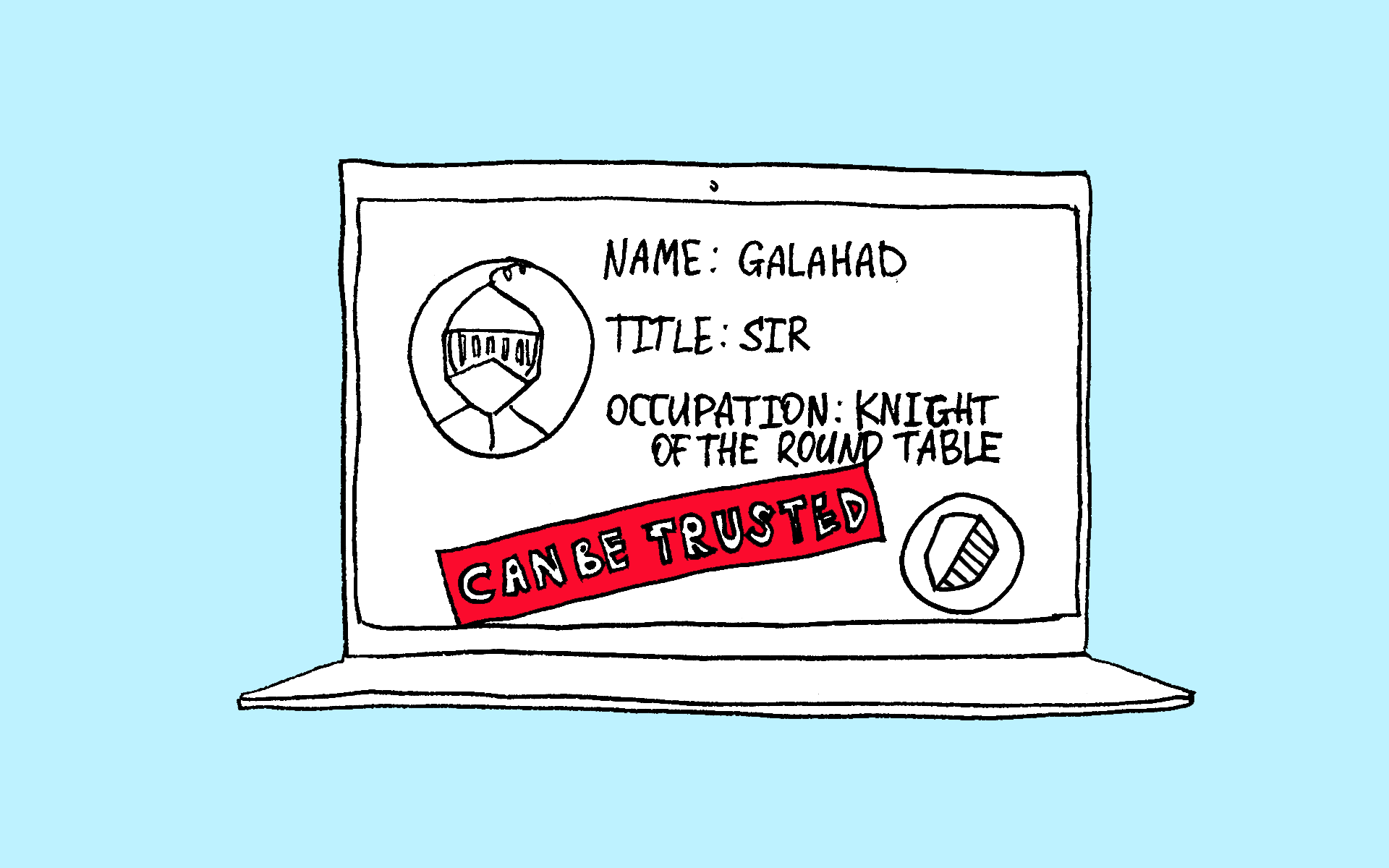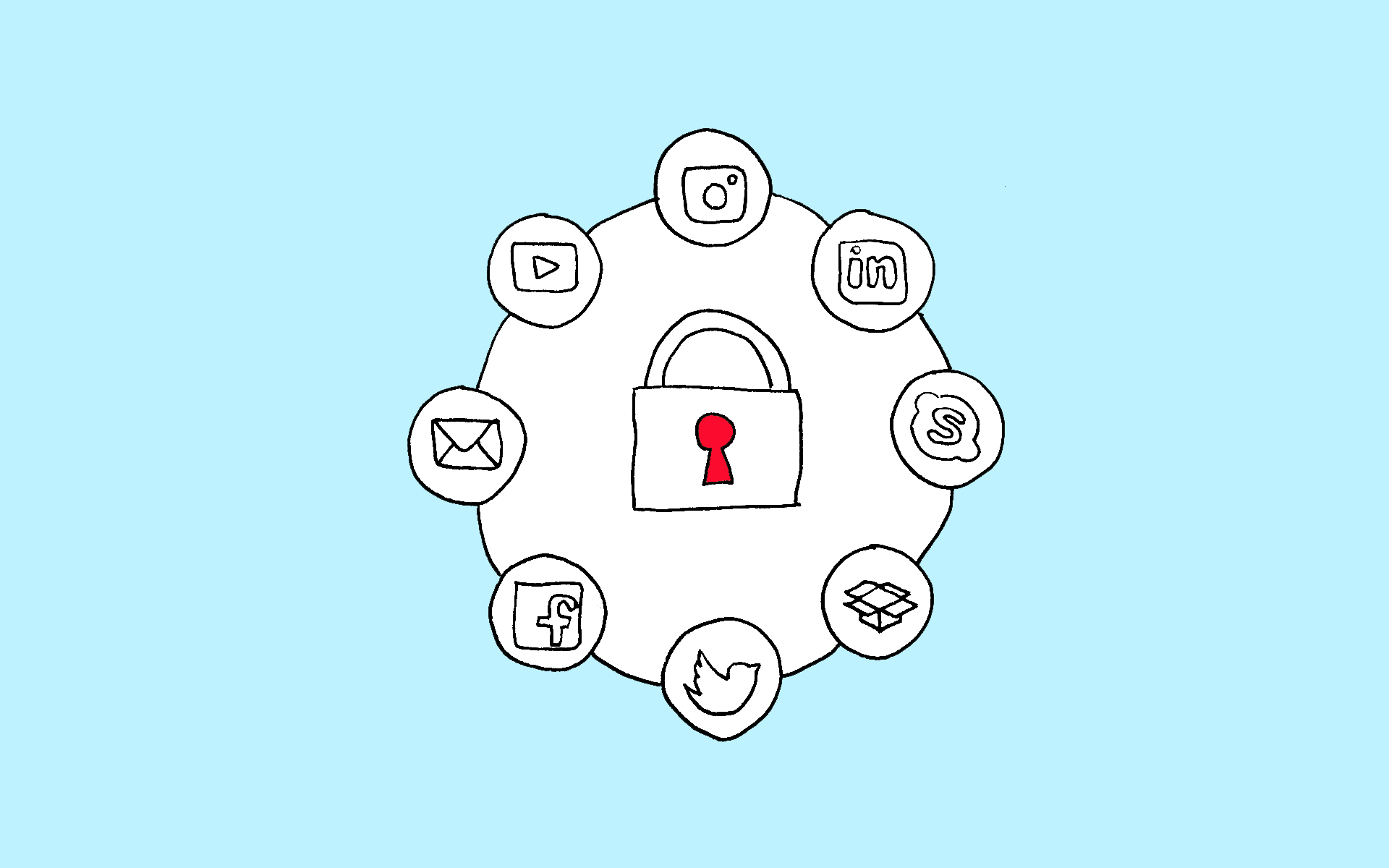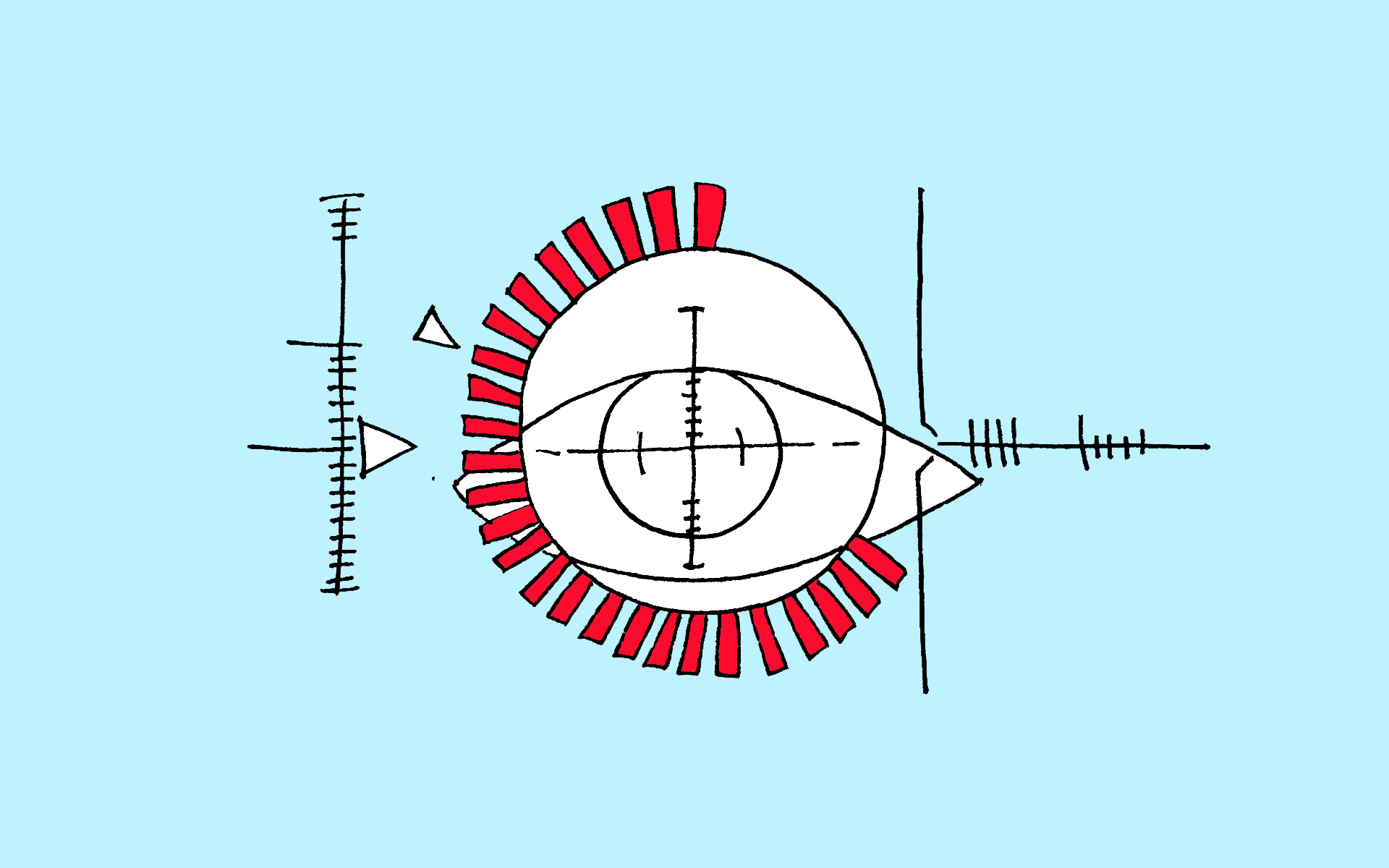 BACK TO ALL
BACK TO ALL

Digital identity is a stored set of a data which is used to represent a physical entity. Most often digital identity is associated with a person however it could also represent a corporation, physical item or application. For example, as smart devices proliferate an internet connected television or refrigerator could have its own digital identity. The implications of that are fascinating but in this article we’ll be primarily concerned with digital identity as it relates to the person.
While blockchain is promising to revolutionize digital identity, more traditional solutions already exist today. Twitter and Facebook can be used to “prove” a person’s identity. Some people have their own websites. However, there are problems to this approach. Facebook accounts can be spoofed and even if the account is legitimate, it’s only useful for a limited number of applications. Try applying for a passport with a Facebook account and see how far that gets you. That’s where blockchain comes in.
As the world learns that cryptocurrency is more than just Bitcoin, digital identity is going to one of the most prominent, if not the most prominent, use case for blockchain technology. Before we look at how that could play out though, first we have to look at some of the existing problems with our identity system today.
The Problems With Physical Identity in Developed Countries
In developed countries there are a litany of services which require some form of national identity. Cryptocurrency enthusiasts who want to purchase Bitcoin or Ethereum with a credit card are no doubt aware of the perils. Before the purchase can be approved a user must upload a copy of their passport or driver’s license to verify that the credit card they’re using is not stolen. The justification for the uploading of ID is good but now a completely unknown firm has a copy of somebody else’s passport and credit card number. Even if that company is trustworthy, look at the number of data breaches that happen every year. If a hacker steals that data it could easily be exploited.
Electronic theft is pervasive but it’s not the only way a person can lose their civic identity. Imagine travelling in a foreign country and a thief steals your backpack with your passport in it. A passport is replaceable but what happens to it before you can report it stolen to the Embassy? What about after? Now a nefarious actor has access to your identity and credit card, just like they would if they had stolen your digital records. It is not an enviable situation.

Finally, there is the question of convenience. Applying for a car loan, mortgage, new credit card or getting a copy of your birth certificate. Any of these require a specific set of documents. If you can’t find those documents then what should be an easy process can turn tedious.
The Problems With Physical Identity in Undeveloped Countries
Identity management is a serious concern for people who live in politically unstable countries. There are countries in Africa who have had multiple governments rise and fall to power in the last hundred years. After each changeover the citizens must ask, are our old identity documents still accepted? Or, imagine the new government destroys the records of the old one. Now the only proof of a person’s existence is the ID that they’re carrying with them. If they lose that it will be very difficult to get a replacement.
An even greater concern may be that the new government is hostile to a certain group of citizens. In the event of political bigotry a ruling government may “revoke” old identities and force certain citizens to apply for new, discriminatory documents. In Nazi Germany the Jewish population was forced to self-identity through special clothing and identity papers. Today a simple mark on a person’s identity card could make them ineligible for loans or other social services.
Then there is the chicken and the egg problem. In order to get a new identity you have to have an old one. Even in the country like the United States a person must submit a half dozen or so documents in order to receive a new driver’s license. What about someone living in Africa? If their house burns down with their records in it and the records at the government office are incomplete, there may be no way for that person to get a new identity card. It is an untenable situation. However, this is one of those rare moments in life where the solution is inexpensive and effective, whether someone lives in Sweden or the Sudan.
Why Blockchain Will be the World’s New Identity Management System
Blockchain applications for identity are not perfect, they will not be the progenitor of the world’s first utopia, but they do offer a large improvement over the existing system.
First, when an identity is created on the blockchain it is immutable. Fire, flood, hurricane, civil war or a kid with a pair of scissors cannot destroy it. So long as the records are stored on a decentralized, non-permissioned blockchain (like Ethereum), a digital identity will be accessible forever. Further, not only will it be impossible to delete it will be tamper proof. A new authoritative regime will not be able to destroy or otherwise alter the digital identities of people whom they do not like. As an added benefit, this further enhances the validity of that identity since everyone who sees it knows that it is not falsified.
A digital identity will also increase voter turnout. Or rather, voter turn-in, since people will be able to vote from their homes. In developed countries that gets rid of the need to wait in long lines or commute to inconvenient poling locations. In developing countries citizens won’t be harassed at polling places. It’s a win-win situation for everyone.
Blockchain applications for digital identity will also be inexpensive. No more printing and laminating cards or paying to renew them. A blockchain based identity can be created in minutes and it never needs to be maintained. This is good news especially for the homeless population. A homeless person, or even someone who moves frequently, will no longer have to worry about losing their identity card or having it stolen. Since it’s stored online it will always be there when they need it.
The last great benefit, which we touched upon earlier, is that it will no longer be required to give out personal information to untrustworthy entities. In our buying Bitcoin with a credit card example, a person now can give their name and then sign the transaction with the blockchain-based identity, proving their identity without revealing personal information. In a decade or two people will laugh that it was once necessary to upload a copy of your passport in order to prove yourself.
The Long Road Ahead
While the benefits of a blockchain identity service are vast, there remain hurdles. No matter how wonderful a blockchain identity solution is, it’s only useful if people accept it. With technology that exists today a person could go to Zimbabwe and create a blockchain ID for an entire family. Brilliant, who is going to accept it? What can that family possibly do with it? The challenge that people are beginning to understand is that adoption is not so much technically unfeasible as sociologically difficult.
Instituting widespread digital identity means creating a new standard at the Department of Motor Vehicles, the hospital, the police station, the social services office and the list goes on. It’s already becoming apartment that the technology can be developed, now the question is: can you get a fifty-seven year old bureaucrat in Mozambique, who doesn’t know what Facebook is, to accept a blockchain-based digital identity?
Going further there is the problem of creating a politically agnostic identity system. In order to achieve mass adoption the blockchain identity protocol must be accepted by all major institutions and political parties. While politicians virtually never disagree and are one of the most harmonious, altruistic groups of people on this planet, they do occasionally have some trouble reaching a unanimous solution.
Earlier we mentioned what can happen if a person loses or destroys their physical identity. What happens if a citizen loses access to their digital blockchain identity? Restoring access cannot be as basic as an email reset or asking a couple of security questions. The solution must be simple enough for a farmer in India yet not so basic that any malicious actor can act accounts at will.

One proposed idea has been to use biometric identity. However, in order for that to work there must be a stored database of all peoples’ information. Where can that be stored? How can it be insured against data leaks? The number of websites that’ve never been hacked is few and far between. That store of biometric data could be one of the largest paydays in history so how could it possibly be protected? These are questions that have yet to be solved.
Bringing it All Together
Digital identity promises to be the killer Dapp of blockchain. It’s the perfect fit. Data stored on the blockchain is immutable, it cannot be tampered with it and it’s simple to set different levels of permissioned viewing. A person signing up for a gym membership, for example, could allow the gym to see their name and home address. Go to the hospital and with a different view key the doctor could check for known allergies, medical history and a list of places that person has lived. And so on, it would be extremely simple to have a dozen or more different sets of data available, depending on who needed to see what.
While this future may be a ways off, and for the foreseeable future it’s physical documents that will keep the world spinning, the rate of growth in blockchain technology is truly astounding. There are thousands, tens of thousands, of highly talented people working on solutions and it seems almost inevitable that in the coming years there is going to be a breakthrough in distributed ledger identity. We don’t know how far off that breakthrough is but when it happens, it won’t be the developers or the company that benefits, it will be the people.
We help our clients to deliver high-quality distributed apps and web-apps with blockchain. If you have any questions about how blockchain might benefit your project, feel free to reach out, we offer a free consultation on the topic.



